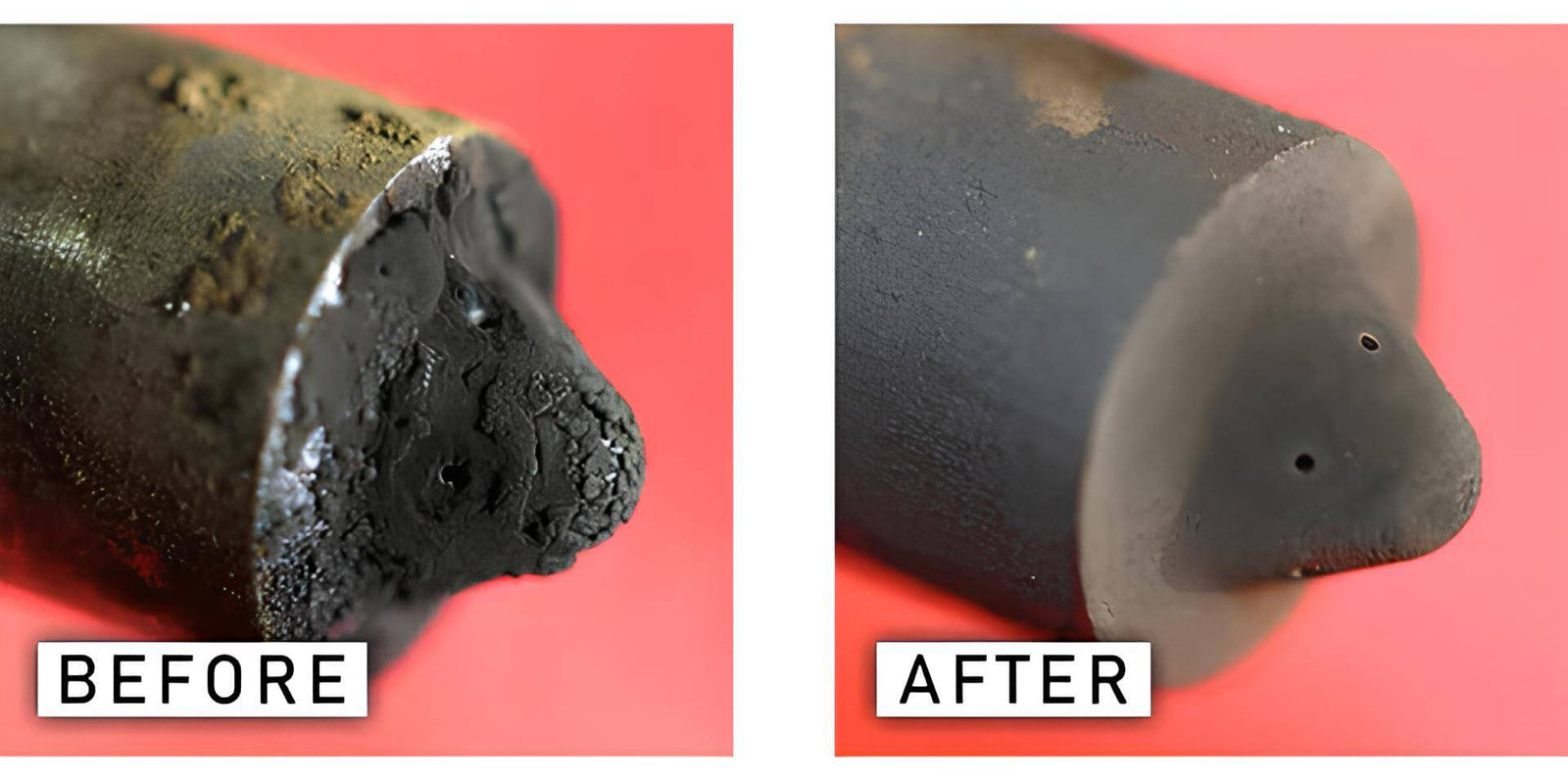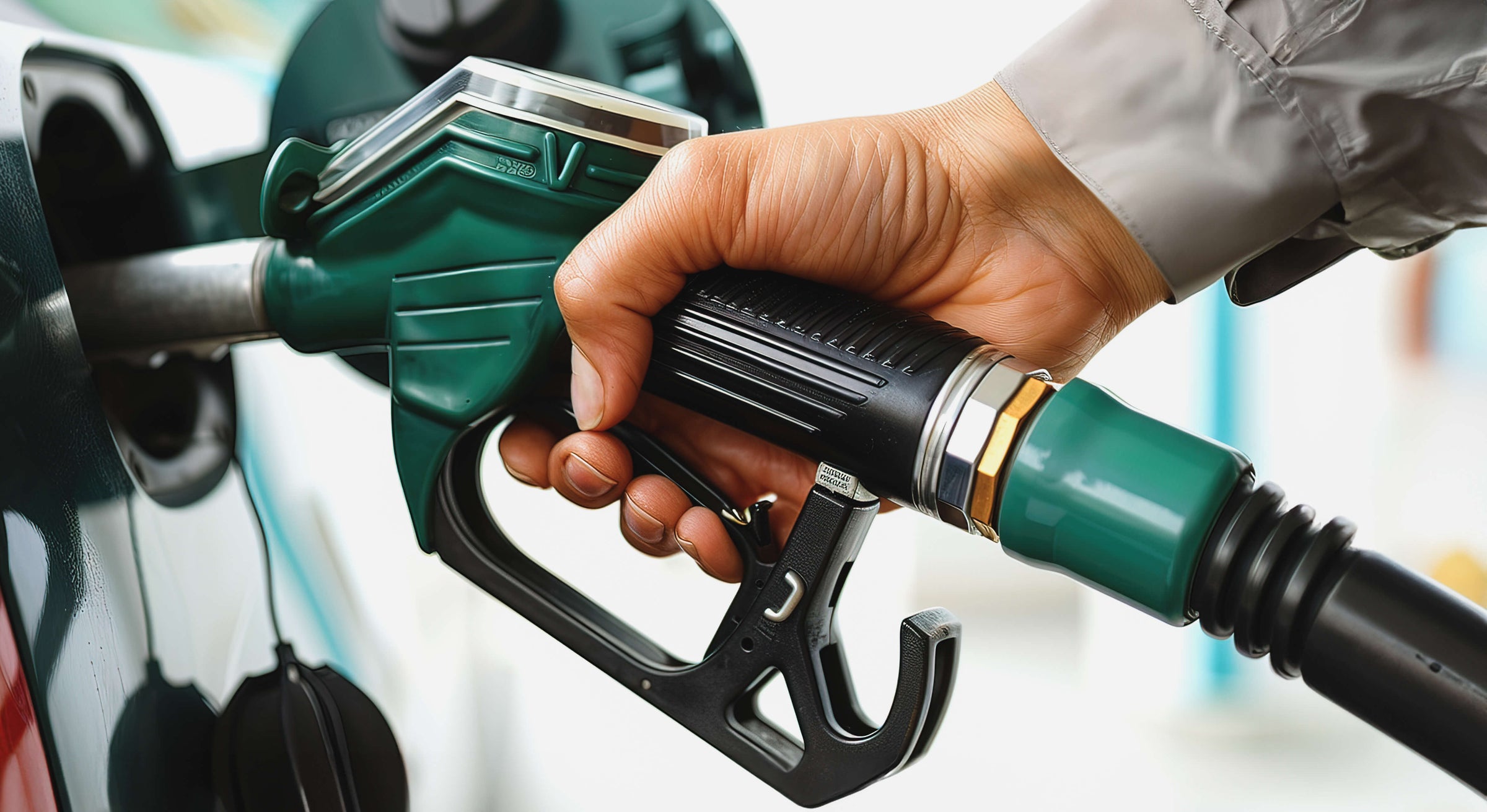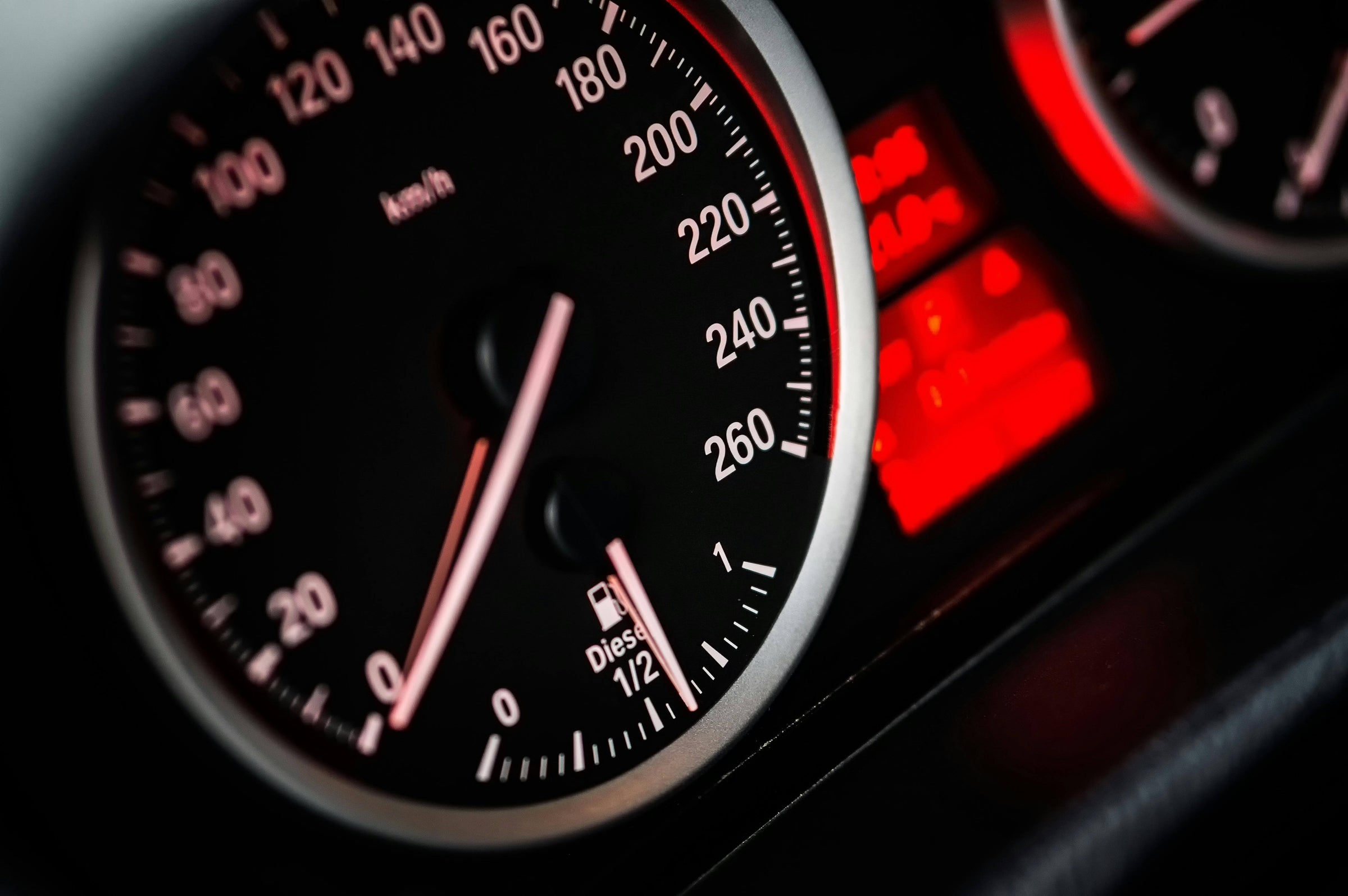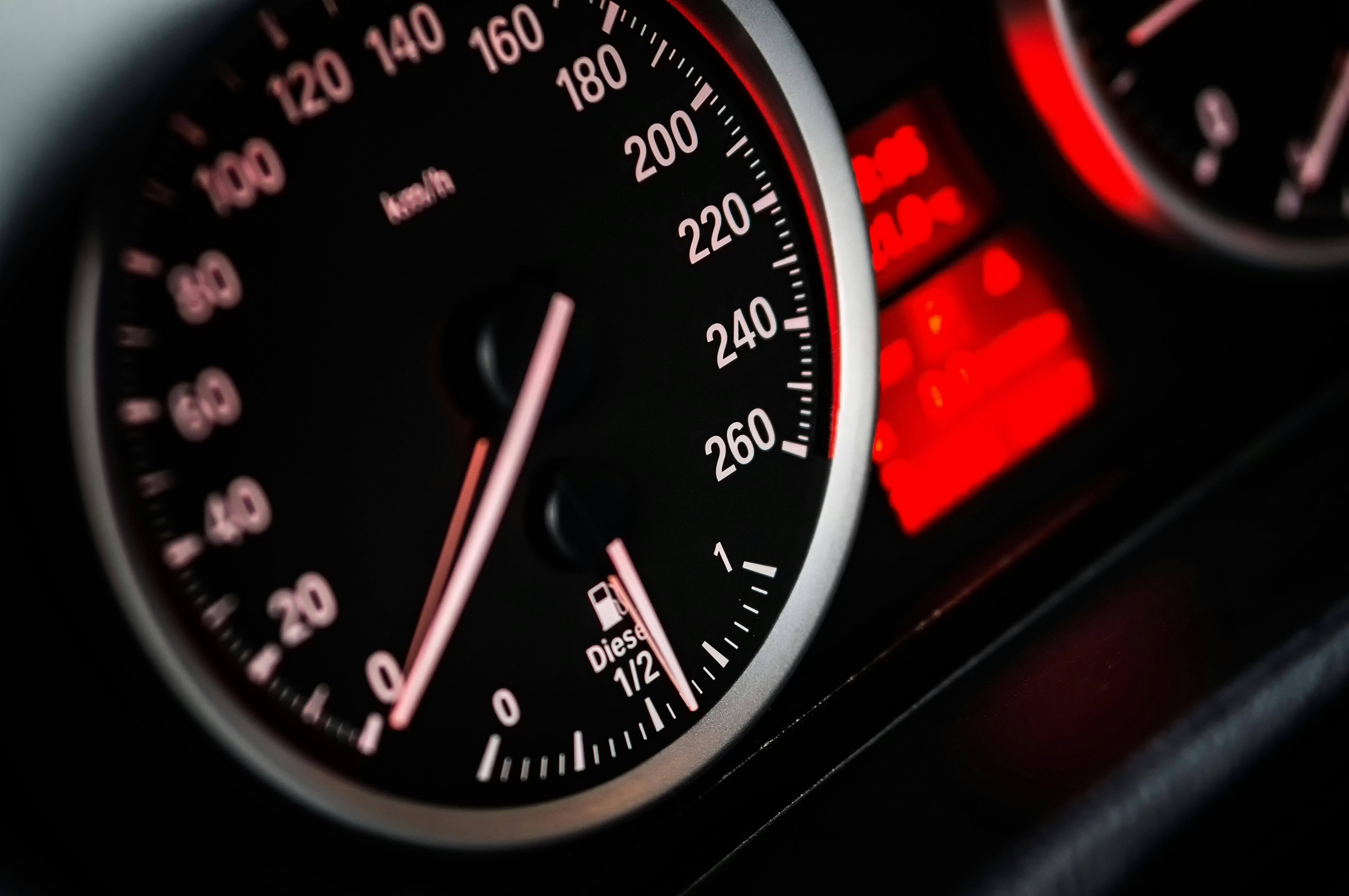Learning how to get better gas mileage could save you hundreds of dollars every year. In a world where fuel costs are consistently high and environmental concerns are increasingly pressing, learning how to improve gas mileage has never been more important. From easy-to-use products that make your vehicle run as the manufacturer intended to simple driving habits that you can implement right away, we’re going to break down how to gain MPG so you can start saving money right away.
Why do diesel’s lose MPG over time?
Diesel engines are known for their durability and fuel efficiency, often outperforming gasoline engines in terms of MPG. But, like any mechanical system, the parts of a diesel engine will degrade over time, leading to reduced fuel efficiency and decreased gas mileage. There are several factors that contribute to this decline:
Poor quality fuel
One of the main reasons for poor fuel economy is the quality of diesel fuel that is available in the US. The issue is that the fuel available at the pump lacks the detergents and lubricity that are required to keep your diesel engine running optimally. Detergents are agents that help to keep your fuel system clean, while lubricity is essential for the smooth interaction between mechanical parts. Over time, continually using low-quality fuel will lead to the build-up of soot and carbon in your fuel system, increasing the work your engine has to do and progressively lowering your MPG. For more information about these processes, you can read our guide to lubricity.
Poor fuel combustion
Another issue with diesel fuel in the US is that it has a low cetane number (CN). Cetane is a set of chemicals that naturally occur in diesel fuel, and the CN is a way to measure how well diesel fuel burns in an engine. The Environmental Protection Agency (EPA) requires a minimum CN of 40, but most vehicles actually require a CN between 47 and 50 to run as intended by the manufacturer. Over time, inefficient combustion from low CN fuel leads to the build-up of carbon, clogging the fuel system’s key components including the fuel injectors, turbo, and DPF, which we will discuss below. For more information about US fuel quality, check out our guide to cetane.
Clogged fuel injectors
The fuel injectors are responsible for spraying fuel into your vehicle’s engine. If built-up deposits clog your fuel injectors, they will compromise the entire performance of your vehicle. This leads to a decrease in your fuel economy and potentially damages your fuel system. Most vehicles will have a build-up of deposits on their injector tips because of inefficient combustion, but allowing these deposits to grow unchecked will not only lead to reduced MPG but can also lead to a costly repair bill.
Turbocharger build-up
Vehicles with turbochargers are much more efficient and get better gas mileage than those with naturally aspirated engines. This is because turbochargers force more air into the engine, and the increased oxygen makes combustion more efficient. However, over time - and especially with the use of low-quality fuel - carbon deposits will build up on the turbo, making it less efficient and potentially leading to damage.
Dirty diesel particulate filter (DPF)
The diesel particulate filter (DPF) is a component in modern diesel engines that is designed to reduce harmful emissions by trapping soot and other particulates before they exit the exhaust system. Over time, these trapped particles build up and clog the DPF. Diesel vehicles use a process known as regens to burn off these particles, but doing so increases fuel burn. The more your diesel needs to regen, the lower your MPG will be.
How to get better gas mileage in your diesel
Fortunately for diesel owners, there is a simple way to overcome the problems of poor quality diesel fuel in the US and boost fuel mileage. Archoil’s Diesel Fuel System Kit will boost your diesel fuel’s cetane rating, improve lubricity, and add the vital detergents that your fuel system needs. Using just these two products provides everything you need to restore your vehicle’s MPG.
Our AR6400-D Diesel Fuel System Cleaner works as a “deep clean” of your system. The highly concentrated formula has the powerful detergents that are needed to clean even the worst accumulations of carbon and soot from your injectors, turbo, and DPF. The below image shows an injector before and after the use of Archoil’s AR6400 Diesel Treatment. As you can see, our powerful formula can remove even the most stubborn of carbon deposits.

After giving your system a deep clean, you can then add our AR6500 Diesel Treatment to the tank every time you fill up to provide ongoing cleaning and maintenance of your fuel system. Not only that, but our AR6500 Diesel Treatment also boosts the cetane rating of your diesel fuel by up to 8 points, improving the combustion efficiency of your fuel and improving gas mileage.
Driving habits to increase miles per gallon (MPG)
Keeping your fuel system, engine, and turbos clean with the ongoing cleaning and maintenance provided by Archoil’s AR6500 is the single best thing you can do to get better gas mileage. But outside of maintenance, there are some behavioral changes you can make when driving to get an extra boost to MPG.
Keep it smooth
One of the easiest ways to get better MPG is to work on your driving style. Making sure all of your driving movements are smooth is essential for maximizing fuel efficiency. That means you should avoid accelerating suddenly and braking abruptly where possible, as these actions make the engine work harder, increasing fuel consumption.
When starting from a stop, you should gradually apply pressure to the accelerator, rather than quickly putting your foot down. Likewise, when braking, it’s better to anticipate the flow of traffic and stay a safe distance behind the car ahead, allowing you to slow down without excessive braking.
Maintain a consistent speed
Similarly to the above, when driving on highways or long stretches of road, maintaining a consistent speed is key to improving gas mileage. When your speed changes, your engine has to adjust more frequently, which can lead to increased fuel consumption. One of the easiest ways to maintain a constant speed is to use cruise control.
According to research done by the Massachusetts Institute of Technology (MIT), speeding and rapid acceleration and braking can lower fuel economy by 15%–30% at highway speeds and 10%–40% in stop-and-go traffic. That means that by simply maintaining the same speed you can get better fuel mileage.
Reduce idling time
Idling is when you leave your engine running when your vehicle isn’t moving. That means your vehicle is using fuel for no reason, leading to reduced MPG. An easy way to get better miles per gallon is to turn your engine off whenever you anticipate being stationary for an extended period, such as at a red light or waiting to pick someone up.
According to the Argonne National Laboratory, you’ll save fuel and reduce carbon dioxide emissions by turning your engine off for stops as brief as 10 seconds. Engineers design modern vehicles to minimize fuel consumption during start-up, so this is a simple way you can save on gas or diesel fuel.
Don’t carry unnecessary weight
It might seem obvious, but the heavier your vehicle, the more fuel it will need to use to move it. When it comes to improving fuel mileage, every extra pound of weight you carry requires your engine to work harder, consuming more fuel in the process.
To improve fuel efficiency, remove items from your trunk and interior that you don't need for your trip. Even though each item may not weigh much, the cumulative effect can be noticeable, especially during city driving or stop-and-go traffic where frequent acceleration and braking occur.
Use air conditioning wisely
There’s no better feeling than blasting the air conditioning on a hot day. However doing so can significantly impact fuel efficiency, especially at higher speeds. If you’re wondering how to increase MPG, it’s best to use the air conditioning sparingly or adjust the temperature to be slightly higher. This can reduce the workload on your engine and get better MPG.
When traveling at lower speeds, it’s worth considering using the flow-through ventilation option instead of the AC to keep you cool while saving fuel.
Maintain proper tire pressure
One of the simplest ways to get better mileage, that people often overlook is to keep your tires properly inflated. Under-inflated tires create more rolling resistance, which means your engine has to work harder to move the vehicle forward, leading to increased fuel consumption.
It’s good practice to check the pressure of your tires once a month and inflate them to the pressure levels specified in your vehicle's manual. Not only do properly inflated tires increase miles per gallon, but they also improve vehicle handling and increase their longevity.
By using Archoil’s Diesel Fuel System Kit you have everything you need to keep your injectors, turbo, and DPF in top condition, while also improving the cetane and lubricity of your fuel. Add in the simple driving tips above and you’ll be able to significantly boost your MPG. Not only will this improve the longevity of your vehicle, but it will also help you save money.
Looking for more great tips to get the most out of your vehicle? Why not take a look at our Resources page for more fantastic car care and maintenance guides?






